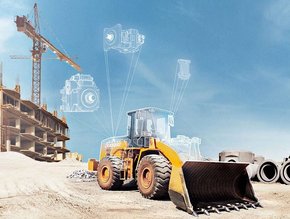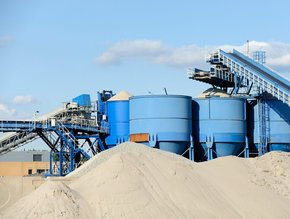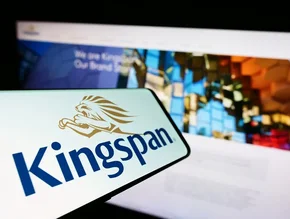7 green business initiatives that will future-proof your business

Green business initiatives need to be considered by all companies. Business leaders have a huge part to play in the conservation of our planet, but with changing consumer attitudes, conservation is no longer just the moral choice: it’s the smart choice, too.
An international study has recently shown that a third of customers are now choosing to buy from brands they believe are doing some form of environmental good, and there is an estimated £866bn opportunity available for brands that make their sustainability credentials clear.
Many of the biggest and most profitable companies who have adopted sustainability practices have discovered that this doesn’t come at any costs to shareholders or owners: in fact, a strong sustainability track record can account for up to 11% of a company’s value.
So: is it time you now followed the green business trend?
Business gas experts Love Energy Savings looked at some practices that are expected to become commonplace in the office in the near future, and why it may be time for you to begin changing how you work for a greener, more sustainable future.
1. Paperless offices
Paperless offices are without a doubt, the future of office life. In an article published by Business Week in 1975, the office of the future was predicted to embrace the world of digital documentation entirely. Fast forward to today, and we still have a long way to go to get to the paperless utopia that was envisioned.
In 2018, the vast majority of office work is done on computers, but the average office worker still uses 10,000 sheets of paper per year. That adds up to 15 trillion pages of paper printed in as little as 12 months.
The good news is that the paperless office movement is growing. Businesses are beginning to realise that reducing paper has more than just environmental benefits: it can also result in higher efficiency and increase productivity levels, and dramatically cuts down on costs. Therefore paper-lite offices are becoming the norm, as employees and staff members are encouraged to use online communication apps and emails.
As cloud storage gets more secure and smartphone technology advances further, completely paper-free offices are not too far away. You can begin the process of making your office paper-free today by using a centralised file-storage system (like Google Drive) and ensuring you have adequate security systems in place. Then, foster a paper-free culture by encouraging your staff to reduce their paper usage.
2. Remote working
2018 has been the year that has brought remote working into the mainstream, with many businesses unshackling workers from their desk in favour of remote working spaces. Modern employees have used new technologies to bring in a new era of hypermobility, which is only set to grow in the future.
This has many benefits for both employees and employers, and also for the environment. Future trends show less and less demand for a brick and mortar office, which is great for sustainability. There will be less electricity used, a reduction in individual carbon footprints thanks to no commute, and fewer offices supplies used (so less waste).
You can join the trend by offering your staff more work from home days, and thinking about the future when you hire new staff - can part of their job be completed from home?
3. Smart technology
Smart technology is the key to more sustainable businesses across industries. Smart lighting is leading the way in data-driven management, which will self-measure and report on energy usage, allowing business leaders to set the rate of electricity used, cutting down on waste dramatically.
Smart water meters will allow us to monitor water use per building from a cloud-based system, which will make it simple to develop comprehensive smart water management plans. Then, it will be much easier to identify leaks and waste and find systems or equipment that have above-average water consumption levels.
Businesses can now take advantage of searching for cheaper tariffs on water rates, so before installing meters, businesses should ensure they are on the most cost-effective rate to make maximum savings. And thanks to a brand new service offering from Love Energy Savings called Love Water Savings, it’s easier than ever for businesses to find those low water tariffs.
Phil Foster, CEO of Love Energy Savings, explained how the new service would change the way that businesses think about water charges. “For years businesses have been tied into contracts from their local water utility provider, but since a change in UK law as of 2017, businesses now have more power when it comes to the price they pay for their water supply.
“By providing our customers with an easy way to compare water tariffs, Love Water Savings can help you reduce business outgoings even further and enable you to save money that you can reinvest into more important things.”
4. Green procurement
‘Green procurement’ is the purchasing of products and services that cause minimal impact to the environment. It includes anything that’s fully recyclable or is designed to reduce energy or water consumption, such as LED bulbs or flush reducers.
With more and more consumers expecting businesses to act responsibly, green procurement is a key objective for businesses that want to win the trust of their potential customers.
Your business should begin to plan a long-term sustainable strategy which can help play a key role in reducing your environmental impact. It will also help you manage your resources and improve overall efficiency.
5. Green hosting
The amount of multimedia content on the internet is insurmountable, and continues to expand. This information is currently hosted on servers, which are stored in data centres. These servers need to be kept running in cool, controlled environments, which requires a large amount of energy. This means data centres are detrimental to the environment.
Many web hosts are now actively trying eco-friendly alternatives to data centres that can help to mitigate the impact data centres have on the environment, something which is referred to as green hosting. The technologies which are currently being developed are only set to improve over time, and green hosting will become the common option for the majority of industries that operate online.
6. Alternative energy
Currently, around half the power in the UK is generated by low-carbon sources. Many businesses worldwide have pledged to only use renewable sources, including Walmart and Apple, but there is still a long way to go.
Companies that switch to renewable energy such as solar power or wind energy, will enjoy consistently lower energy bills, less service disruption and a great ROI.
The good news is that it’s becoming easier than ever before for businesses to switch to green energy. Companies that make the change now will see a greater benefit — both for the environment and for their overheads — in the long term that those who delay.
7. Meat-free cafeterias
Livestock production has a bigger impact on the planet than anything else. Meat production and meat consumption need to change if we want a fairer, more sustainable world.
Global office-sharing company WeWork, for example, has decided to go entirely meat-free. The company says that they will no longer serve or reimburse expenses on meals containing meat in a bid to “leave a better world for future generations”. It’s a controversial move and has lead to some criticism, but WeWork has estimated that the ban will save 16.7 billion gallons (63.2 billion liters) of water, 445 million pounds (202 million kg) of carbon dioxide emissions, and more than 15 million animals by 2023.
With an increasing number of business cafeterias offering vegetarian options, meat-free offices could become the norm.
Phil Foster believes businesses can begin making the changes today that will have a huge affect on the environment in future. “Some of the changes mentioned, like green hosting and meat-free offices, will take a while to bed into the culture of businesses around the world.
“However, when it comes to paperless offices, remote working and alternative energy, there are steps we can all take now to ensure we look after the future as best we can.
“Even energy-saving practices around the office in our day-to-day — whether it’s as simple as ensuring that lights are switched off when they’re not needed or that computer banks are shut down when everyone goes home — can have a massive impact in the long run.”
As a business owner, there are many steps you can take now to help your company become more sustainable, which will help you save money and become more attractive to clients in the meantime. Find out about how switching your business energy can help, or take a look at our blog for some more energy and money saving tips.






